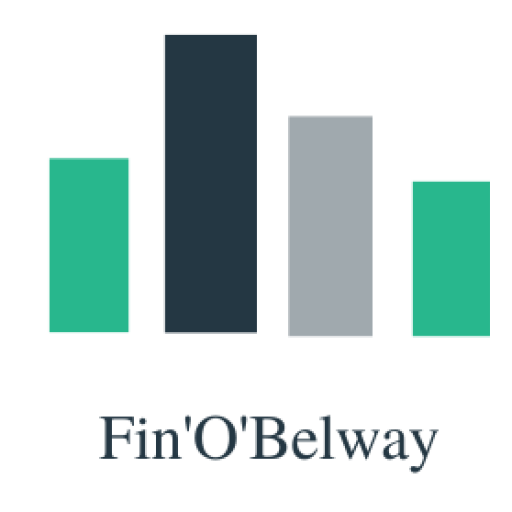Suppose you follow the startup ecosystem and the associated news actively. In that case, you may have come across terms such as funding round, pre-money valuation, post-money valuation, equity dilution, founder ownership, etc. This article will help you understand these ideas using the context of a startup going through multiple financing rounds and seeing a valuation mark-up or mark-down in each round.

A (fictitious/possible) startup
Consider a fictitious startup in the party planners business. Let us name it ‘YouChillax.com,’ in short YC. The company began operation in May 2018 in the city of Cawnpore. The business idea was pretty simple. With the increasing trend of outsourcing party planning related to birthdays, weekend parties, house warming ceremonies, etc., the team YC saw an opportunity and offered a solution. It provided a platform for households to provide their requirements through the app ‘YouChillax.’ The app interface needed very minimal details to make an inquiry. The customers could leave details such as name, contact details, event name (birthday party, weekend party, full-day retreat, kitty parties, new year barbecue, etc.), expected number of guests to be invited, food preference (vegetarian, non-vegetarian), cuisine (continental, north Indian, South Indian, Chinese, etc.), beverage preferences (alcohol, non-alcoholic, etc.), the date/time of the event, the pin code or address of the location of the party, preferred time to be contacted, etc. The customers could leave the details in less than 60 seconds. Once the customer has placed a request, the business development team from YC will schedule a call over telephone/videoconferencing to understand the requirement better and provide suggestions and a quotation for the complete service.
The beginning
The company was bootstrapped using the savings of 5 lakh rupees of its two co-founders (Ms. Meenakshi and Mr. Murad). The initial investment was primarily in building the website and the associated app for placing the requirement. The initial advertisement of the venture and its offerings was done through the circulation of pamphlets in the residential colonies of Cawnpore. And the first set of businesses were brought on board through visits to the households and pitching the idea of easing the party planning efforts. The company received its first customer order for a house warming ceremony-related party event on May 22, 2018. Meenakshi and Murad also used the ceremony to advertise their venture and reach out to other prospective customers. Soon, the platform enabled orders to the tune of 30+ orders per week. The numbers were minuscule, but the business seemed to be gaining traction through word-of-mouth publicity by satisfied customers (especially the households with both spouses working full time-jobs who saw the immense utility of such a service at a reasonable cost structure).
Need for Capital
The initial six months went through multiple hiccups, as one would expect for any startup, but the lean idea of this business seemed to be working well. Confident with the initial success, they felt the urge to take it to more cities (multiple locations). To achieve this goal, they needed access to capital to grow the seemingly successful business idea rapidly. Meenakshi and Murad, for the first time, felt that they had made it but felt the need for capital. They were pondering how to approach the potential investors and other financiers to raise the required money for the first time.
Founders’ ownership, funding rounds and equity dilution
They approached a few family members and friends for funding. But they could not extend support in the situation. Meenakshi and Murad currently owned 50% each as ownership in the firm. The co-founders assessed that they might need capital up to INR 25 lakhs to achieve their goal over the next six to eight months. After meeting multiple angel investors who were willing to offer them the required capital but asked for a varying percentage of ownership in the company. Worried about losing some control in their company, they sat down to evaluate Mr. P. R. Tijoriwala’s proposal, who offered INR 25 lakh for a 20% stake in the company in December 2018. Meenakshi and Murad needed it very urgently and hence accepted this offer. While they accepted this offer, it also led to the dilution of their equity by 20%. After this funding round, their equity ownership in the company stood as 40% [~50%*(1-0.2)] for Meenakshi, 40% [~50%*(1-0.2)] for Murad, and 20% for Mr. Tijoriwala.
| Time | Owners/Investor category | Ownership |
| Time 0 | Co-Founders (Meenakshi and Murad) | 100% |
| Time 1 | Angel Investor – Mr. P. R. Tijoriwala | 20% |
| Time 2 | Series A Investors | 10% |
The simple arithmetic of pre-money and post-money valuation
At INR 25 lakh, the stake that Mr. Tijoriwala asked for was 20%. This translates into him placing a post-money valuation of INR (25/0.2) lakhs ~ INR 1.25 crore for YC. Therefore, the pre-money valuation turns out to be INR 1 crore (post-money valuation minus the capital offered ~ 1.25 crore – 25 lakhs = 1 crore). The post-money ownership is 80% for the co-founders and 20% for the new investor Mr. Tijoriwala.
| Owner/Investor category | Time 0 | Time 1 (Funding by Mr. Tijoriwala) | Time 2 (Funding by Series A investors) |
| A) Offered capital and stake asked | |||
| A1) Offered capital | INR 25 lakhs | INR 2 crores | |
| A2) Stake asked | 20% | 10% | |
| B) Equity dilution after each round | |||
| B0) Co-Founder (Meenakshi) | 50% | 40% | 36% |
| B0) Co-Founder (Murad) | 50% | 40% | 36% |
| B1) Angel Investor – Mr. P. R. Tijoriwala | NA | 20% | 18% |
| B2) Series A investors | NA | Not participated | 10% |
| Total | 100% | 100% | 100% |
| C) Valuation | |||
| C1) Pre-money | NA | INR 1 crore | INR 18 crores |
| C2) Post-money | NA | INR 1.25 crores | INR 20 crores |
Subsequent funding rounds and valuation mark-up or mark-down
YC grew and succeeded in the newer locations. The firm was now gaining more comprehensive visibility through word of mouth and social media posts by satisfied users. YC was receiving inquiries from different cities and contemplated expanding across multiple metropolitan towns. This next phase of growth again needed additional capital to the tune of INR 2 crores. Meenakshi and Murad were passionate about taking their firm to the next level and were willing to dilute their holdings to raise extra capital if needed. In August 2020, the founders could generate interest from the Venture Capital community and angel investors (founders of some of the recent unicorns) in this proposed Series A funding. The funding round closed with new investors getting a 10% share in the company. The round effectively closed at a post-money valuation of INR (2/0.10) crores ~ INR 20 crores for YC. The firm observed a valuation mark-up since the funding round of December 2018. The valuation shot up to INR 20 Crores from INR 1.25 crores in 20 months. The equity ownerships changed to 36% each for Meenakshi and Murad, whereas Mr. Tijoriwala’s ownership fell to 18%. The series A investors had 10% ownership.
Lets see some real-world examples
I hope this simple illustration should have clarified the pre- and post-money valuation ideas and associated equity dilution. I encourage you to read some of these articles published in popular financial dailies to see this concept in practice.
1) Meesho’s fund raise: https://timesofindia.indiatimes.com/business/india-business/meesho-to-raise-1bn-at-valuation-of-8bn/articleshow/87859070.cms
2) Apna’s fund raise: https://entrackr.com/2021/09/exclusive-apna-in-talks-to-raise-fresh-round-at-over-1-bn-valuation/
Disclaimer: The author contributed to this article in his personal capacity. The views and opinions expressed are his own and do not necessarily represent the views of the author’s employer. Any comments or suggestions for improvements are most welcome. Please leave your comments below.

Great article to understand funding and its impact
Thanks, Vidya, for your words of encouragement!
Nice article, Suman!
Thanks, Subhankar.
Well written article. Useful for both experts as well as beginners.
Thanks for appreciating the article!
Thank you sir for such a nice article.
Thank you sir for such a nice article
Thank you, Malik, for appreciating the article.